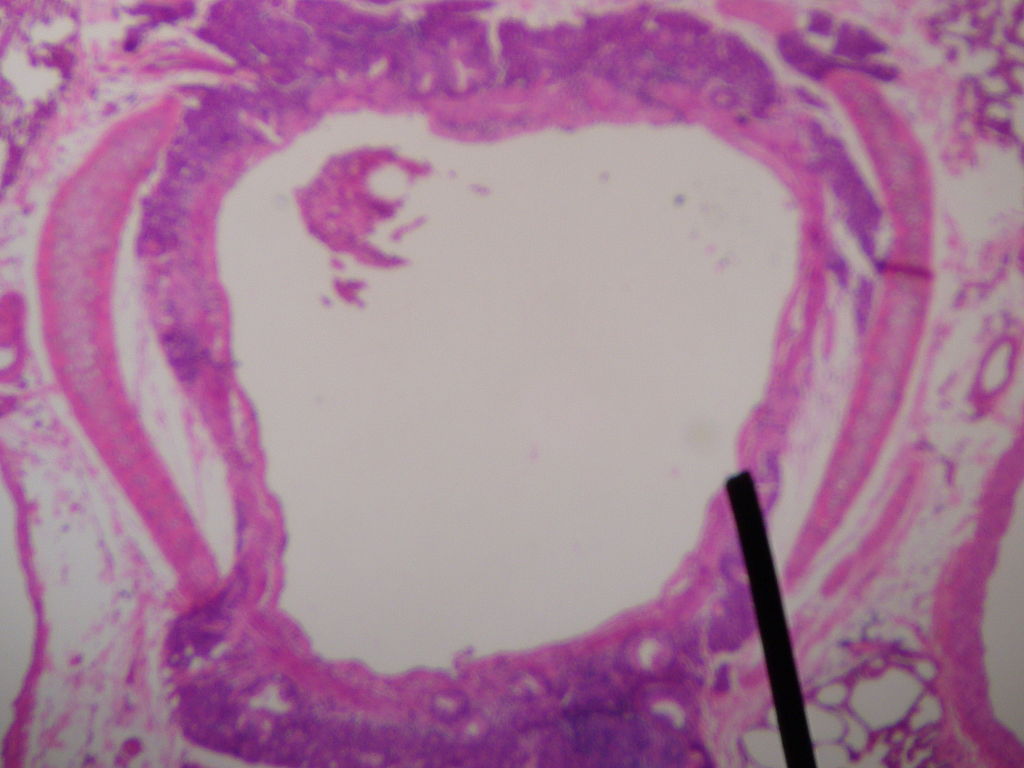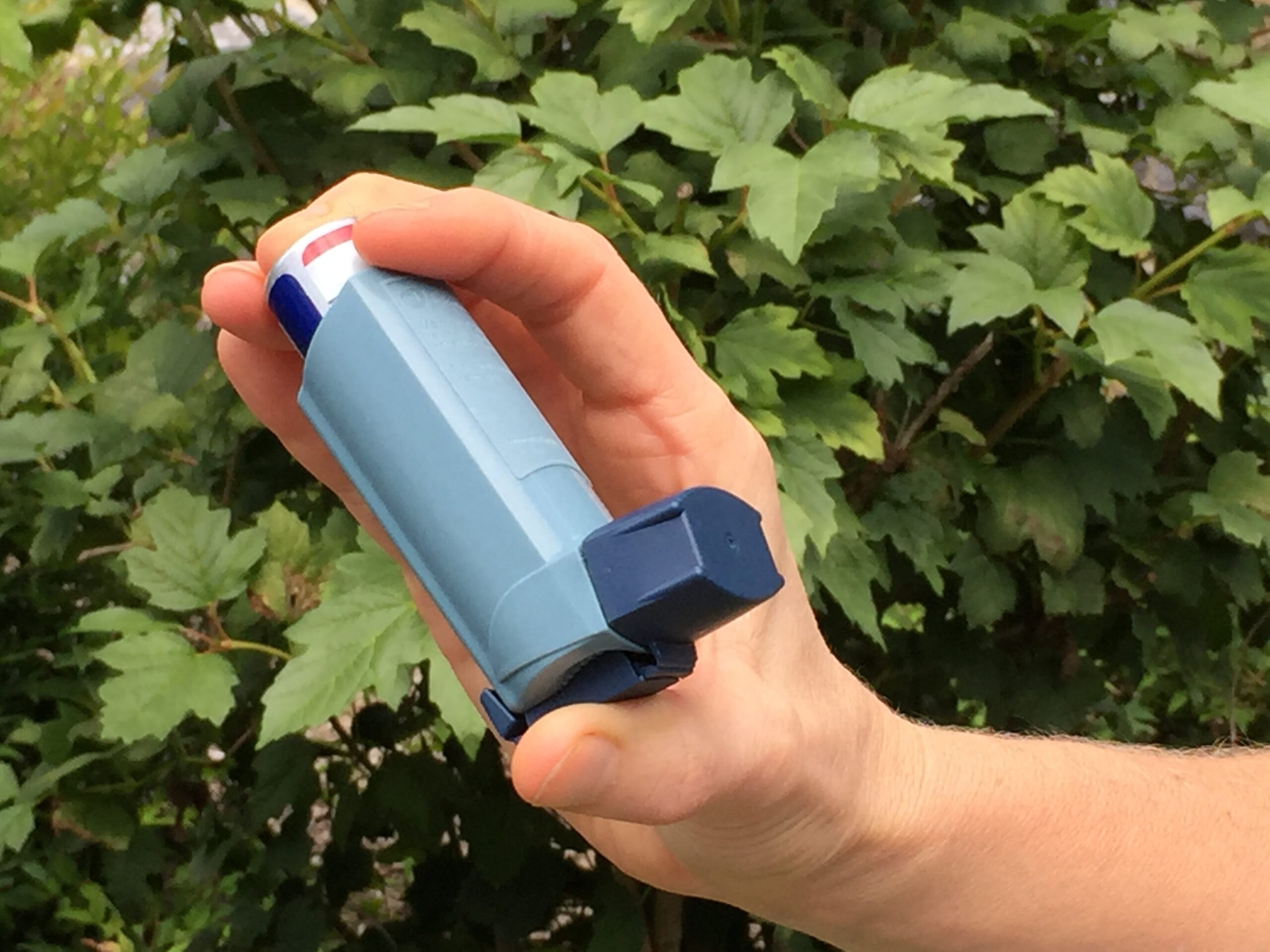Playlist
Show Playlist
Hide Playlist
Release Inhibitors and IgE-Antibody-mediated Therapy
-
Slides Respiratory Pharmacology.pdf
-
Download Lecture Overview
00:01 Let's talk about mast cell inhibitors. We also call them degranulation inhibitors but now we have changed the name to just call them release inhibitor, so you may see one of those three names. 00:12 Cromolyn is the prototypical agent in this drug class. It is an insoluble chemical and has minimal systemic absorption. 00:20 It is rarely used now. And eye drop and nasal spray formulations are sometimes used for allergy to wheat dust, what is commonly called hay fever. 00:31 Not terribly effective and we don't really use them clinically either. 00:35 Let's move on to IgE antibody mediated therapy. I have mentioned this type of therapy before. 00:43 Monoclonal antibodies are completely changing the entire aspect of medicine. 00:48 I mentioned some of the monoclonal antibodies in lipid control in my lipid lecture some time ago. 00:55 IgE antibody mediated treatment like omalizumab is a humanized murine monoclonal antibody. 01:05 It will bind to the IgE on sensitized mast cells. It prevents activation by asthma trigger antigens. 01:13 Now, it is really expensive. It's in the tens of thousands of dollars. 01:19 My gosh, it's really quite effective. These are once a week or once every two week injections. 01:27 Some of the monoclonal antibodies in other treatment areas such as rheumatoid arthritis are given once every 3 months and we're expecting to see some of these agents come out for asthma that are given more rarely as well. 01:41 This is a very exciting area of medicine. I can't wait to see what happens. 01:45 And it's completely changing the way we treat asthma. 01:49 Here is a summary of the biologic agents used to treat moderate to severe asthma, all of which are monoclonal antibodies designed to target specific pathways in the asthma inflammatory process. 02:03 First up, we have Anti-IgE therapy with omalizumab, which was just discussed. 02:10 This medication latches onto IgE found on sensitized mast cells, preventing these cells from being activated by various asthma triggers. Next, there are therapies targeting Interleukin-5 (IL-5). Since IL-5 plays a key role in the growth and activation of eosinophils, antibodies that block IL-5 can reduce eosinophilic inflammation in the airways. 02:38 Examples of such medications include mepolizumab and reslizumab, which are direct anti-IL-5 monoclonal antibodies, and benralizumab, which targets the IL-5 receptor alpha subunit. 02:53 Moving on to a broader approach, we have dupilumab, an anti-IL-4 receptor alpha subunit antibody. By binding to this receptor, dupilumab impedes the action of IL-4 and IL-13, both of which are type 2 cytokines involved in the allergic response and asthma pathophysiology. 03:14 Lastly, tezepelumab targets thymic stromal lymphopoietin, a cytokine produced by epithelial cells that contributes to the inflammation seen in asthma. By understanding these targeted therapies, we can personalize asthma treatment and improve outcomes for those with more severe forms of the disease. 03:37 Each of these agents represents a sophisticated approach to modulating the immune response and curbing the inflammatory processes that underlie asthma. As noted earlier, they are all very expensive.
About the Lecture
The lecture Release Inhibitors and IgE-Antibody-mediated Therapy by Pravin Shukle, MD is from the course Respiratory Pharmacology.
Included Quiz Questions
What best describes omalizumab?
- Humanized murine monoclonal antibody
- Humanized equine monoclonal antibody
- Upregulates the production of cAMP to relax and dilate the smooth muscle
- Passes through the cell and into the nucleus to directly augment DNA expression
- Acetylcholine receptor agonist
Customer reviews
3,0 of 5 stars
| 5 Stars |
|
0 |
| 4 Stars |
|
1 |
| 3 Stars |
|
0 |
| 2 Stars |
|
1 |
| 1 Star |
|
0 |
I liked it because I learned some keypoints in less time .It usually would have took 3-4 days for me to get all the points but LECTURIO and PRAVIN SHUKLE made it easiler for me . But in my point of veiw there should be more detail about the mode of action and mechanism of drug . I can and will recommend lecturio to my friends and even to pharm D friends.
1 customer review without text
1 user review without text





